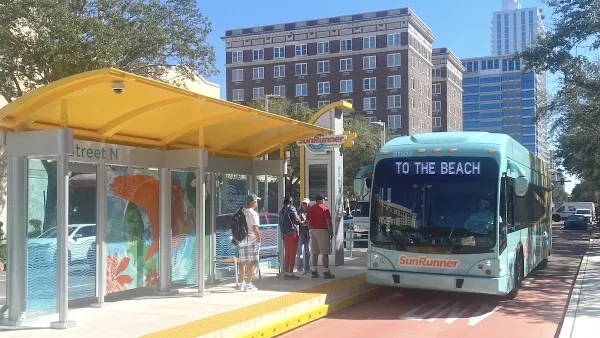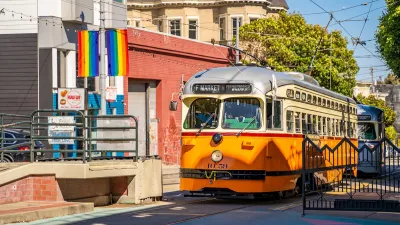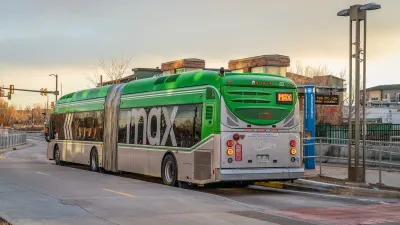The number of BRT systems in the U.S. continues to rise, with new lines opening in cities across the nation. But, a debate has arisen within the transit community over just how much should we rely on such systems.
Undoubtedly, cities around the United States are embracing bus rapid transit. Ryan Holeywell, of Governing magazine writes on the continued rise in popularity. "Until now, just a handful of U.S. transit agencies have embraced BRT," says Holeywell. "That's changing. Longtime transit leaders like Chicago, New York City and San Francisco are planning new BRT services, while less transit-focused places like Hartford, Conn.; Jacksonville, Fla.; and Montgomery County, Md., are pursuing it as well."
That popularity stems from the fact that many BRT lines are seeing increased patronage over that of regular bus lines. Additionally, as Holeywell writes, "[t]he other goal is to make buses feel safe and inviting. The exteriors of BRT buses often feature cosmetic enhancements to make them appear more modern. Stops are designed to be aesthetically pleasing and convenient, complete with landscaping and bicycle racks. And electronic displays let riders know how soon the next vehicle is coming."
Despite their increasing popularity, concerns remain for some in the transit community, stemming from what some see as an over-reliance on BRT. "Some in the light-rail community view BRT as a threat that actually undermines transit," writes the author. The conversion of travel and parking lanes to dedicated BRT lanes causes consternation with businesses and automobile drivers as well.
Still, undeniable is BRT's ability to help cash-strapped transportation agencies expand their offerings in a time when money for more expensive light rail and subway construction isn't readily available.
FULL STORY: Bus Rapid Transit Gaining Traction Despite Concerns

Maui's Vacation Rental Debate Turns Ugly
Verbal attacks, misinformation campaigns and fistfights plague a high-stakes debate to convert thousands of vacation rentals into long-term housing.

Planetizen Federal Action Tracker
A weekly monitor of how Trump’s orders and actions are impacting planners and planning in America.

In Urban Planning, AI Prompting Could be the New Design Thinking
Creativity has long been key to great urban design. What if we see AI as our new creative partner?

Portland Raises Parking Fees to Pay for Street Maintenance
The city is struggling to bridge a massive budget gap at the Bureau of Transportation, which largely depleted its reserves during the Civd-19 pandemic.

Spokane Mayor Introduces Housing Reforms Package
Mayor Lisa Brown’s proposals include deferring or waiving some development fees to encourage more affordable housing development.

Houston Mayor Kills Another Bike Lane
The mayor rejected a proposed bike lane in the Montrose district in keeping with his pledge to maintain car lanes.
Urban Design for Planners 1: Software Tools
This six-course series explores essential urban design concepts using open source software and equips planners with the tools they need to participate fully in the urban design process.
Planning for Universal Design
Learn the tools for implementing Universal Design in planning regulations.
Gallatin County Department of Planning & Community Development
Heyer Gruel & Associates PA
JM Goldson LLC
City of Camden Redevelopment Agency
City of Astoria
Transportation Research & Education Center (TREC) at Portland State University
Jefferson Parish Government
Camden Redevelopment Agency
City of Claremont





























